Outdoor TV antenna: characteristics, installation and connection
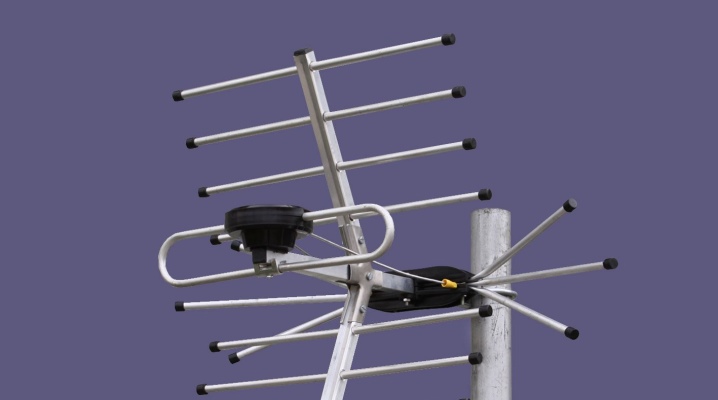
Despite the heavy use of the Internet, television has not faded into the background. Many people like to spend their free time watching their favorite shows, TV shows or following the news in the world. In order to watch TV broadcasts in good quality, you need to install an outdoor antenna.
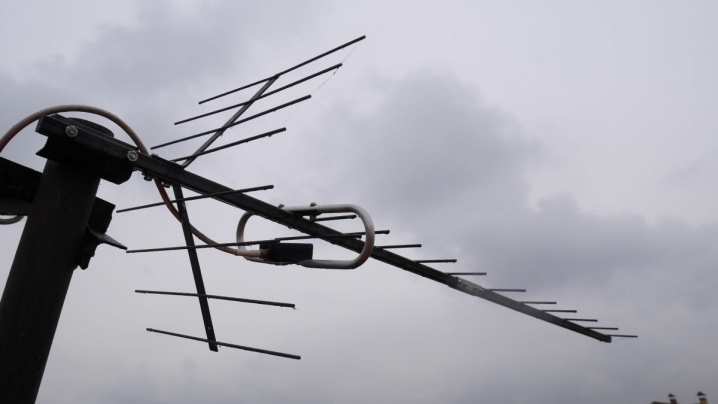
Peculiarities
In areas with a good signal, people can make do with indoor antennas for excellent TV coverage. However, in most regions, you cannot do without an outdoor TV antenna for comfortable viewing of your favorite TV shows and movies. The advantages of this device include the following.
- Due to the high directivity of individual models of external antennas, obtaining the maximum signal while accurately aiming at the translator. Also, these devices help to catch the steady reflection of radio waves in concrete structures.
- The presence of the gain of the outdoor antenna for the TV contributes to its operation without the presence of an amplifier even for receiving far-wave digital television.
- The devices are made of lightweight aluminum alloy, therefore they can be easily installed on a wall, tree, low mast.
- Active antenna able to pick up the most accurate signal even with interference.
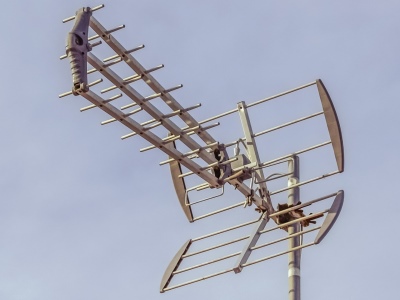
Disadvantages of outdoor antennas:
- the ability to be shot down and damaged by birds;
- the antenna is the entry point for the lightning discharge, therefore, it must be turned off during a thunderstorm;
- a device installed in an apartment building may interfere with other residents.
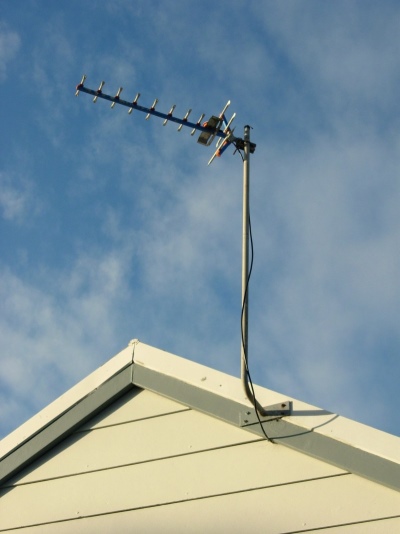
Views
According to functionality and appearance, outdoor antennas are divided into the following types.
- Satellite. The functioning of the dishes does not depend on the proximity of the television tower, since they are broadcast using satellites. The power of this type of signal is not influenced by the topography of the territory. Even the simplest options for devices, for example, offset and direct focus, easily receive the signal and reproduce the image in high quality. Cymbals are capable of working with many providers and showing a large number of channels.
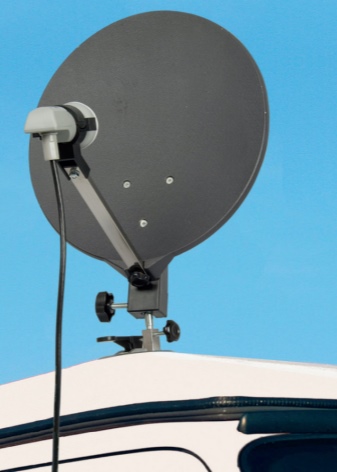
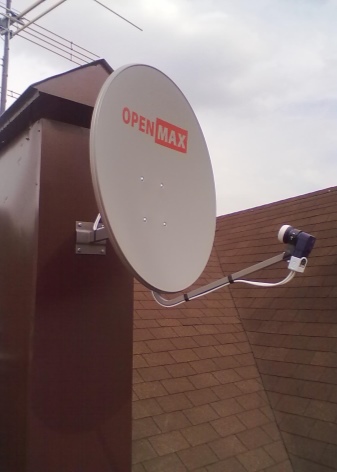
- "Polish" installations - these are simple, unassuming and inexpensive antennas. They consist of a lattice frame and antennae. Such devices are often used in the country. The "Polish" design can catch many local-style channels. Typically, such devices are placed on a house, roof or post by positioning the frame towards the television tower.
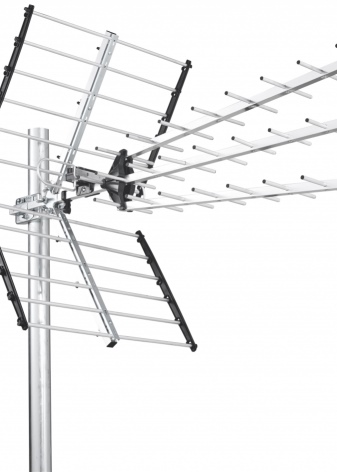
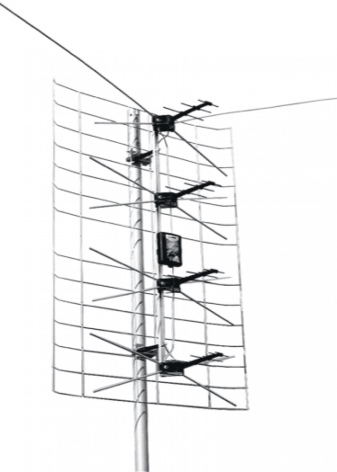
- "Polish" antenna with an amplifier unit. This device has a built-in amplifier in its design, therefore it belongs to active ones. The purchase of such a design allows you to significantly expand the list of received channels, as well as improve the quality of the broadcast. In the design of the device, there are several blocks located as advantageously as possible for good channel acceptance. The installation of this type of outdoor antenna should be carried out as high as possible.
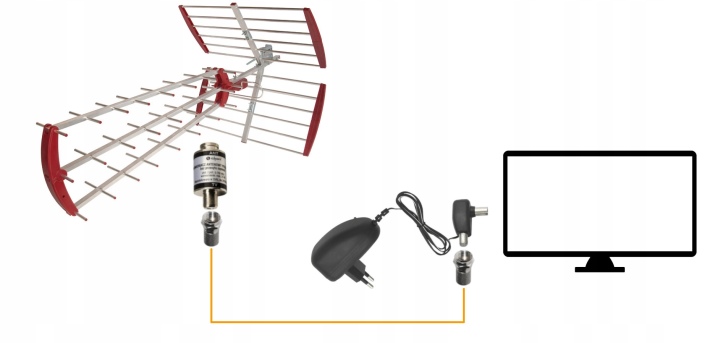
- Traveling wave antenna. The device is characterized by high receiving capabilities and compactness. All composite structures are attached in the form of one common boom. This type of device is capable of functioning with several ranges. This characteristic is considered very important for those settlements that are far from the tower.
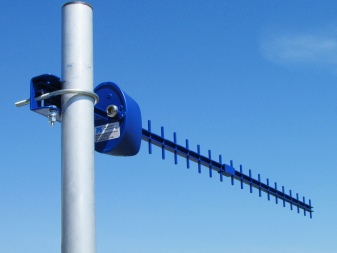
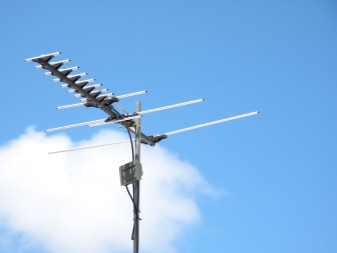
- Digital. A device of this type consists of a tuner that processes a digital signal and a frame installed on the street. In this case, the tuner is engaged in picking up signals. Such an outdoor TV antenna is considered an excellent option for people living near the city.
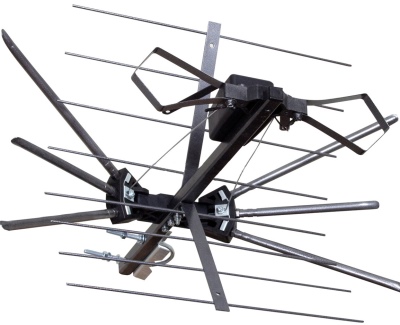
By type, outdoor antennas for TVs are divided into passive and active. The former have an external converter, while the latter have a built-in amplifier. The quality of signal reception for both types of devices is practically the same, the difference is in the service life.
Active antennas do not have additional protection, so they function for about a year. Passive devices last much longer.
Model overview
Currently, there are a large number of models of outdoor television antennas on the modern market. Each of the devices is characterized by adaptation to individual factors, such as the geolocation of housing, the location of the nearest tower, and the quality of the signal transmission. When choosing an outdoor TV design, the above factors should be taken into account.
The most popular TV fixture models are as follows.
- "Delta"... These antennas are presented in the form of narrow directional devices, as well as broadband universal ones. Most Delta antennas work with digital signals. They are easy to connect, receive and process signals well.
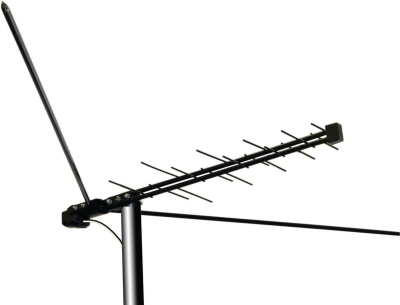
- Lokus. Devices from this manufacturer are both active and passive. These antennas are characterized by an affordable price and good quality. Due to the simplicity of the design, no specific tools are required during installation of the fixture.
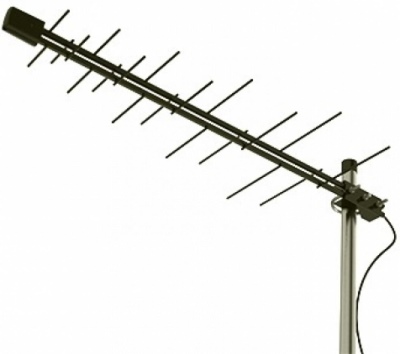
- "Harpoon"... This antenna manufacturer produces goods with affordable prices. These devices can function even in an area with an uncertain signal.
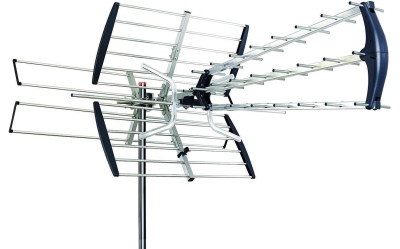
- GoldMaster. Despite the low cost of antennas, they are characterized by the ability to receive a signal even in areas with poor coverage. The devices work well in rural areas and even endure bad weather.
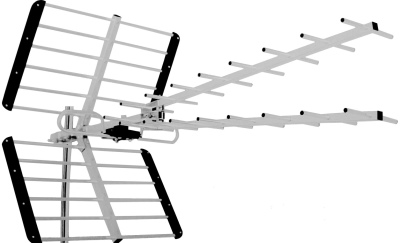
How to install?
An outdoor antenna for digital television should be installed taking into account the terrain. It is desirable that the translator has a direct line of sight of the signal... If the room is located in a low place, then the structure should be mounted on a separate mast. The dwelling in an elevated position facilitates the possibility of installing the television fixture on a tree, wall and roof.
The antenna should be mounted on a bracket and not directly on a mast or tree trunk. The bracket allows you to swivel and tilt the fixture. Also, the block retainer is quite conveniently fixed on it. When installing, it is worth using a cable that is designed for outdoor use and for work along a line length of 300 meters or more.
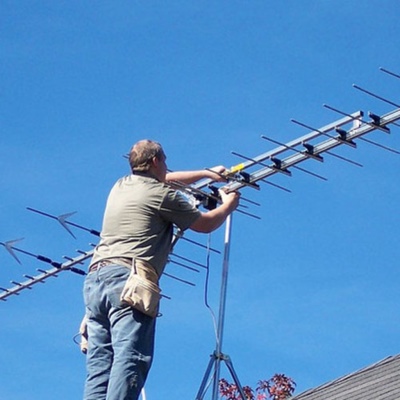
Connection
Connecting the antenna is not so difficult, for this it is enough to follow the rules that are indicated in the instructions. After the outdoor device is connected, it will need to be configured. To do this, in the TV setup, select the section for automatic channel tuning.
After the picture appears on the screen, you can start adjusting the image quality.
For information on how to install an outdoor TV antenna, see the next video.













The comment was sent successfully.